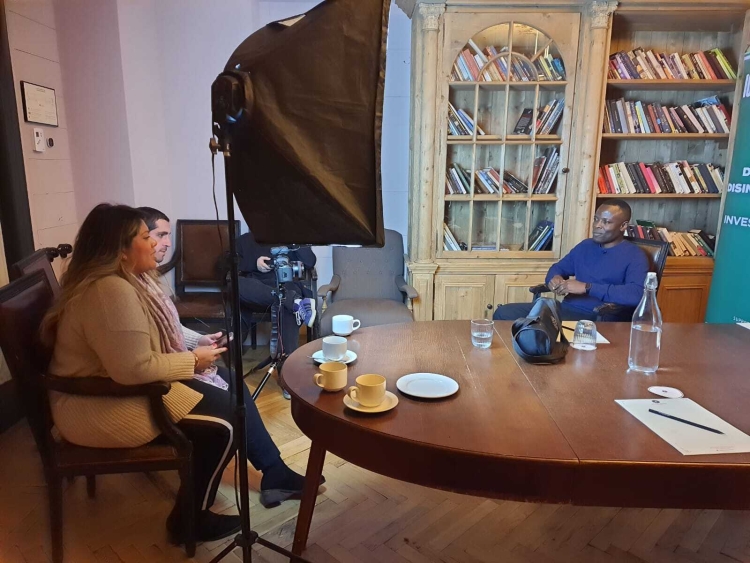A Nigerian blogger recently told ICFJ-backed journalist James Okong’o: “For money, we published whatever our employer wanted – sometimes it was false, misleading or even inciting.”
The blogger’s admission was part of an eye-opening investigation from Okong’o published last month by Agence France-Presse Fact Check. The journalist convinced six so-called digital mercenaries in Kenya and Nigeria to speak with him about how they are paid – by political parties and candidates – to organize large-scale disinformation campaigns.

Okong'o is one of many journalists ICFJ has equipped to reach voters with trustworthy news — not just this year, but beyond:
- Reporters, including Okong'o, have published six investigations into electoral disinformation so far, as part of our Disarming Disinformation initiative, supported by the Scripps Howard Fund.
- Factchequeado, the fact-checking project co-founded by ICFJ Knight Fellow Laura Zommer, has partnered with over 100 news outlets across the U.S. to debunk electoral lies targeting Spanish speakers. Earlier this month, they hosted live fact-checking on WhatsApp and social media during the second presidential debate. Answers to users' questions from Factchequeado and their allies reached over 57,000 people.
- Journalists from Zimbabwe to the United Kingdom will come to the U.S. as part of an ICFJ initiative to cover the final weeks of the presidential campaign. They will provide live coverage for their newsrooms at home and report from battleground states for U.S. outlets.
- To reach even more journalists with resources, our International Journalists' Network (IJNet) offers a toolkit in English, Farsi, Portuguese and Spanish about election coverage, with a focus on combating electoral disinformation. Check it out.
- Meedan's Election Exchange coalition calls, held through IJNet's Crisis Reporting Forum, have brought together journalists from around the world to exchange lessons learned, reporting advice and tips for covering the upcoming U.S. elections. Topics discussed include combating mis- and disinformation targeting underserved communities, confronting false narratives around "noncitizen voting" and more.
In a year when more than 60 countries are holding national elections, this support is foundational. The training, mentorship and resources ICFJ offers journalists is critical to keeping voters informed and democracy thriving.